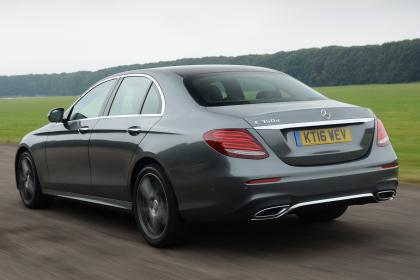Petite Car Prices May Tumble on GST Implementation
Car prices could come down significantly if the government-appointed panel’s recommendation of a standard tax rate of 17-18 per cent for most goods and services is accepted. Manufacturers, which presently pay 30-50 per cent taxes on cars, are likely to pass the benefits of lower taxes to consumers, analysts say.
“The automobile sector could benefit significantly from GST if the government accepts the recommendations of the GST panel and puts automobiles (except luxury cars) in the general category of standard goods and services with a rate of 17-18 per cent,” said Sanjeev Prasad of Kotak Institutional Equities.
Puny cars (length of less than four metres and engine size below one thousand five hundred cc) are presently taxed at 30.Four per cent, which includes an excise duty of 12.Five per cent, central sales tax of two per cent, national calamity contingent duty of one per cent and VAT of 12.Five per cent.
Once the GST comes into effect, manufacturers may have to pay a tax of seventeen -18 per cent on puny cars, which could bring down prices by twelve per cent to thirteen per cent.
“As GST would subsume all taxes, a standard rate of seventeen per cent would mean that prices could come down by over ten per cent,” said Kapil Singh and Siddhartha Bera of Nomura. (Read)
The benefits of GST would not only accrue to petite cars, but luxury cars too even however they are proposed to be taxed at forty per cent under GST. Sedans (over four metres) and sports utility vehicles (SUVs) are presently taxed at 44.Five per cent and fifty two per cent respectively.
Post GST, prices of luxury sedans could come down by 4-5 per cent, while prices of SUVs can tumble by 10-12 per cent, analysts say.
Utility vehicle maker Mahindra & Mahindra Chairman Anand Mahindra on Tuesday came out strongly in support of the GST. The government wants to introduce the GST from April 1, 2016, but the largest revenue shake-up since independence is stuck in the Rajya Sabha, where the government does not have a majority.
The implementation of the GST will not only influence prices of cars, but also boost margins of auto manufacturers as they will no longer have to maintain depots across major states.
“The recommendation for abolishing inter-state tax, if implemented, could lead to servicing from a few major hubs, less time lost at state entry-exit points, improved efficiency and better fleet utilisation levels,” Nomura said. The reduction in logistics costs could boost margins of manufacturers by 30-40 basis points, it added.
Prices of spare parts (including batteries) are also likely to come down on GST implementation. The spare part industry is presently taxed at twenty eight per cent and it may have to pay 17-18 per cent tax once GST comes into effect.
Puny Car Prices May Tumble on GST Implementation – GST India-Goods and Services Tax in India
Petite Car Prices May Tumble on GST Implementation
Car prices could come down significantly if the government-appointed panel’s recommendation of a standard tax rate of 17-18 per cent for most goods and services is accepted. Manufacturers, which presently pay 30-50 per cent taxes on cars, are likely to pass the benefits of lower taxes to consumers, analysts say.
“The automobile sector could benefit significantly from GST if the government accepts the recommendations of the GST panel and puts automobiles (except luxury cars) in the general category of standard goods and services with a rate of 17-18 per cent,” said Sanjeev Prasad of Kotak Institutional Equities.
Puny cars (length of less than four metres and engine size below one thousand five hundred cc) are presently taxed at 30.Four per cent, which includes an excise duty of 12.Five per cent, central sales tax of two per cent, national calamity contingent duty of one per cent and VAT of 12.Five per cent.
Once the GST comes into effect, manufacturers may have to pay a tax of seventeen -18 per cent on puny cars, which could bring down prices by twelve per cent to thirteen per cent.
“As GST would subsume all taxes, a standard rate of seventeen per cent would mean that prices could come down by over ten per cent,” said Kapil Singh and Siddhartha Bera of Nomura. (Read)
The benefits of GST would not only accrue to puny cars, but luxury cars too even however they are proposed to be taxed at forty per cent under GST. Sedans (over four metres) and sports utility vehicles (SUVs) are presently taxed at 44.Five per cent and fifty two per cent respectively.
Post GST, prices of luxury sedans could come down by 4-5 per cent, while prices of SUVs can tumble by 10-12 per cent, analysts say.
Utility vehicle maker Mahindra & Mahindra Chairman Anand Mahindra on Tuesday came out strongly in support of the GST. The government wants to introduce the GST from April 1, 2016, but the largest revenue shake-up since independence is stuck in the Rajya Sabha, where the government does not have a majority.
The implementation of the GST will not only influence prices of cars, but also boost margins of auto manufacturers as they will no longer have to maintain depots across major states.
“The recommendation for abolishing inter-state tax, if implemented, could lead to servicing from a few major hubs, less time lost at state entry-exit points, improved efficiency and better fleet utilisation levels,” Nomura said. The reduction in logistics costs could boost margins of manufacturers by 30-40 basis points, it added.
Prices of spare parts (including batteries) are also likely to come down on GST implementation. The spare part industry is presently taxed at twenty eight per cent and it may have to pay 17-18 per cent tax once GST comes into effect.
